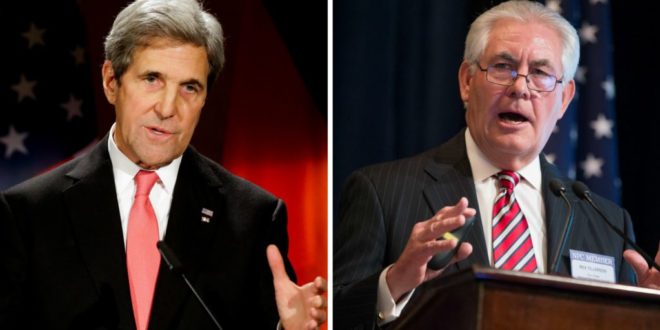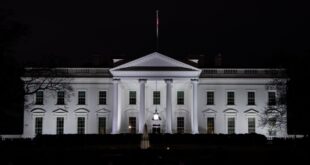Shehab Al-Makahleh
It is apparent that Washington has various stances on Syria during the coming period. The first is that its foreign policy is still vague, it has targeted the Syrian army many times. The second trend is the role-play that Russia and Iran master when it comes to the Syrian crisis. This would put US strategy in a severe regional impasse if it does not take effective measures to maintain the momentum pertaining to its intervention.
The third trend is that Washington will tend to activate cooperation with Moscow on the Syrian issue with the aim of establishing a mechanism to manage the crisis between the two parties in order to ensure a certain distribution of quotas and influence between them. The fourth trend refers to Washington’s formulation of a strategy based on three stages: First, the elimination of ISIS or “neutralization” of its threat. Second, stabilizing Syria’s border security and undermining Iranian influence through sharing power with Russia. Third, a quiet transition of government.
Non-stop involvement?
Last week, Syrian government issued a statement condemning US Secretary of State Rex Tillerson’s speech at Stanford and the Hoover Institution on January 18 that Washington aims to keep its troops in Syria long after their fight against ISIS to ensure that neither Iran nor Syrian President Bashar al-Assad take over areas that have been newly liberated with American military support.
Tillerson’s speech reflects US interest in non-stop involvement in Syria even if the terrorist organisations are crushed. This has driven the Syrian government to issue a statement denouncing the American interest and their will to keep their troops for unlimited time.
“The US military presence on the Syrian territory is illegal and violates international law and national sovereignty of Syria and aims to protect ISIS,” read a Syrian Foreign Ministry statement.
Tillerson said: “We have five key goals in Syria. They are: ensuring that ISIS and al-Qaeda never re-emerge; supporting the UN-led political process; diminishing Iran’s influence; making sure the country is free of weapons of mass destruction and helping refugees to return after years of civil war.”
Are these interests in line with the signals aired by John Brennan, former head of the US Central Intelligence Agency, when he said in 2016 that he had been not optimistic about the future of Syria remaining one country, noting that such rare public acknowledgement by a senior US official that Syria may not survive a several years of civil war in its current state.
Brennan’s speech was at that time at the annual Aspen Security Forum in Colorado when he elucidated that he does not know whether or not Syria would be put back together again as there has been so much blood spilled, pointing out that he was not sure that he would see a unified Syria in his lifetime.
Furthermore, former US Secretary of State John Kerry had previously expressed similar fears, saying he would move towards “Plan B” that could involve a partition of Syria if a ceasefire did not materialize in advance of peace talks.
The de-escalation agreements reached last summer have allowed Iran to be outside the borders of the buffer zone. They have also give the Iranians access to al-Suwayda and increased their presence in the vicinity of the capital Damascus to secure the alternative land line.
Russia has also gained from the deal by getting what it sought for which helped decrease the tension and risk that its forces would face at certain fronts, mainly in country sides of Homs and Ghouta. This has helped to strengthen the line of defense of its forces Tartous to protect its military bases in Syria.
Turkey, through its new operation in Afrin, has aimed to impose a fait accompli on the Americans by coordinating with the Russians who withdrew their troops from the area targeted by Turkish army and by allowing them to use the airspace of Syria. The Turkish-Russian-Iranian coordination has benefited them and served them better through the de-escalation zones while the US has lost and this has been realized later on, prompting the American government to keep up with the status quo in Syria to turn the military balance.
Syria is a complex problem and the American plan to have their eternal base in this country would not suit Washington in the long run. Since the US has begun its military action in Syria to counter ISIS, which controlled a large area in Syria and Iraq in 2014, Washington has not reached a decisive decision what would the status of Syria be after the end of war.
David Satterfield, a senior State Department official, told the Senate a few days ago that despite this remarkable and outstanding progress to counter terrorism, ISIS and al-Qaeda are still a serious threat. The American administration said it wanted to avoid what previous President Barack Obama committed of grave mistakes when he took a decision to pull out the US troops from Iraq, leaving a vacuum that was filled by terrorists and Iran.
It looks like the Americans do not want to give Iranians access to the Mediterranean from Tehran and prevent Turkey from having connections with Iraq and Syria.
___________
Shehab Al-Makahleh is Director of Geostrategic Media Center, senior media and political analyst in the Middle East, adviser to many international consultancies. He can be reached at: @shehabmakahleh and @Geostrat_ME
Source: Al Arabiya English
 Geostrategic Media Political Commentary, Analysis, Security, Defense
Geostrategic Media Political Commentary, Analysis, Security, Defense





